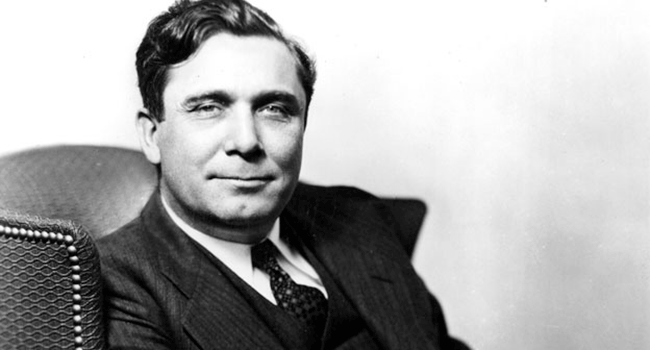 This year’s Republican convention is a keen disappointment for political junkies. History offers at least one such gathering that was more compelling.
This year’s Republican convention is a keen disappointment for political junkies. History offers at least one such gathering that was more compelling.
Just a few months ago, we hoped to experience that rare animal in American politics – a contested, multi-ballot convention with all the drama we’ve only read about in books. But Donald Trump has deprived us of that pleasure, providing yet another reason to be mad at him.
So if we’re confined to dipping into history in search of a gripping contest, let’s look at the Republican gathering of June 1940. This was the convention that nominated Wendell Willkie.
Willkie (1892-1944) was a most unlikely Republican presidential nominee. For one thing, he’d been a registered Democrat until September 1939. And he was an outspoken international interventionist at a time when much of the Republican base was isolationist, wanting nothing more than to shun any involvement in the war in Europe.
Born in Indiana, Willkie was adept at presenting himself as a homespun midwesterner. The reality, though, was more complicated.
Willkie was a lawyer who came to initial prominence as CEO of the power utility Commonwealth and Southern, in which capacity he fought a public battle against Franklin D. Roosevelt’s plan to replace the company’s southeastern monopoly by establishing the Tennessee Valley Authority. Although he ultimately lost that fight, Willkie secured a good price for Commonwealth and Southern’s assets and made a name for himself as someone who would stand up to what many people saw as Roosevelt’s bullying antipathy toward private business.
Then there was his personal life.
Midwestern twang notwithstanding, Willkie was irrevocably attached to New York City, which he described as “the most exciting, stimulating, satisfying spot in the world.” That attachment was compounded by his long-running affair with Irita Van Doren, the New York Herald Tribune’s book editor. Had such an affair become public knowledge, it would have torpedoed the political career of any married man in 1940 America.
Willkie’s political rise is a case study of what happens when the charismatic man, the moment and the media all come together. He was adopted by the likes of Henry Luce and the Cowles brothers, media magnates who believed that America should be doing much more to assist Britain’s fight against Nazi Germany.
Luce owned Time and Life, the two most influential mass audience magazines in the country. And the Cowles published Look and two important midwestern newspapers – the Minneapolis Star-Journal and the Des Moines Register. Thanks in large part to such high-powered media support, Willkie’s poll standing among Republicans climbed from less than one per cent in March 1940 to 29 per cent in early June.
When the convention voting started on June 27, Willkie initially placed third, behind New York’s Thomas Dewey and Ohio’s Robert Taft, both of whom were running as isolationists. By the third ballot, he’d moved into second place. And by the fourth, he was leading as Dewey’s vote collapsed and Taft became the main opponent. Finally, in the early hours of June 28, Willkie prevailed on the sixth ballot.
Willkie then did two things that can only be construed as putting principle above politics. And in both instances, he helped Roosevelt out of a tricky spot.
One was his tacit approval of the destroyers-for-bases deal, whereby America transferred 50 First World War ships to the Royal Navy in return for basing rights on British possessions in the Caribbean and western Atlantic. At Roosevelt’s request, Willkie privately promised not to make the transfer a campaign issue.
The other action was related to the Roosevelt administration’s highly controversial desire to introduce a peacetime draft. Speaking to a massive rally on Aug. 17, Willkie endorsed the plan. A month later, the Senate and House approved it.
But if he expected any gratitude for this statesmanship, Willkie was severely disappointed. With vice-presidential candidate Henry Wallace leading the charge, the Democrats assailed him. In the words of historical journalist Lynne Olson, “Wallace, the designated brawler on the Democratic ticket, came within an inch of saying that a vote for Willkie would be a vote for Hitler.”
Perhaps humourist Finley Peter Dunne’s fictional Irish-American Mr. Dooley put it best: “Sure, politics ain’t beanbag.”
Troy Media columnist Pat Murphy casts a history buff’s eye at the goings-on in our world. Never cynical – well perhaps a little bit.
The views, opinions and positions expressed by columnists and contributors are the author’s alone. They do not inherently or expressly reflect the views, opinions and/or positions of our publication.
